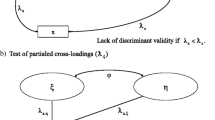Abstract
In a multichoice game a coalition is characterized by the level at which each player is acting, and to each coalition a real number is assigned. A multichoice solution assigns, for each multichoice game, a numerical value to each possible activity level of each player, intended to measure the contribution of each such level to reaching the grand coalition in which each player is active at the maximal level. The paper focuses on the egalitarian multichoice solution, characterized by the properties of Efficiency, Zero Contribution, Additivity, Anonymity, and Level Symmetry. The egalitarian solution is also shown to satisfy the property of marginalism: it measures the effect of lowering, ceteris paribus, a certain activity level by one. The solution is compared to a multichoice solution studied in Klijn, Slikker, and Zarzuelo (1999). Finally, it is discussed how the formalism of this paper can be applied to the different framework of multi-attribute utilities.
Similar content being viewed by others
References
Aumann, R.J. and L.S. Shapley. (1974). Values of Non-Atomic Games. Princeton, NJ: Princeton University Press.
Calvo, E. and C.J. Santos. (2000). “A Value for MultichoiceGames.” Mathematical Social Sciences 40, 341–354.
Calvo, E. and C.J. Santos. (2001). “A Value for Mixed Action-SetGames.” International Journal of Game Theory 30, 61–78.
Derks, J. and H. Peters. (1993). “A Shapley Value for Games withRestricted Coalitions.” International Journal of Game Theory 21, 351–360.
Einy, E. (1988). “The Shapley Value on Some Lattices ofMonotonic Games.” Mathematical Social Sciences 15, 1–10.
Faigle, U. and W. Kern. (1992). “The Shapley value forCooperative Games Under Precedence Constraints.” InternationalJournal of Game Theory 21, 249–266.
Hsiao, C.-R. and T.E.S. Raghavan. (1993). “Shapley Value forMulti-Choice Cooperative Games.” Games and Economic Behavior 5,240–256.
Kalai, E. and D. Samet. (1988). “Weighted Shapley Values.” In A.E.Roth (ed.), The Shapley Value: Essays in Honor of L.S. Shapley. Cambridge: Cambridge University Press, pp. 83–99.
Klijn, F., M. Slikker, and J. Zarzuelo. (1999). “Characterizationsof a Multi-Choice Value.” International Journal of Game Theory28, 521–532.
Moulin, H. (1995). “On Additive Methods to Share Joint Costs.” Japanese Economic Review 46, 303–332.
Nouweland, A. van den, J. Potters, S. Tijs, and J. Zarzuelo.(1995). “Cores and Related Solution Concepts for Multi-Choice Games.” ZOR—Mathematical Methods of Operations Research 41, 289–311.
Shapley, L.S. (1953). “A Value for n-Person Games.” In A.W.Tucker and H.W. Kuhn (eds.), Contributions to the Theory of Games II Princeton, NJ:Princeton University Press, pp. 307–317.
Weber, R.J. (1988). “Probabilistic Values for Games.” In A.E. Roth (ed.), The Shapley Value: Essays in Honor of L.S. Shapley. Cambridge: Cambridge University Press, pp. 101–119.
Young, H.P. (1985). “Monotonic Solutions of Cooperative Games.” International Journal of Game Theory 14, 65–72.
Zank, H., M. Joore, H. Peters, L. Anteunis, and G. Boas. (2002).“A New Index for the Evaluation of Health States and HealthPrograms.” University of Maastricht.
Author information
Authors and Affiliations
Corresponding author
Rights and permissions
About this article
Cite this article
Peters, H., Zank, H. The Egalitarian Solution for Multichoice Games. Ann Oper Res 137, 399–409 (2005). https://doi.org/10.1007/s10479-005-2270-7
Issue Date:
DOI: https://doi.org/10.1007/s10479-005-2270-7




